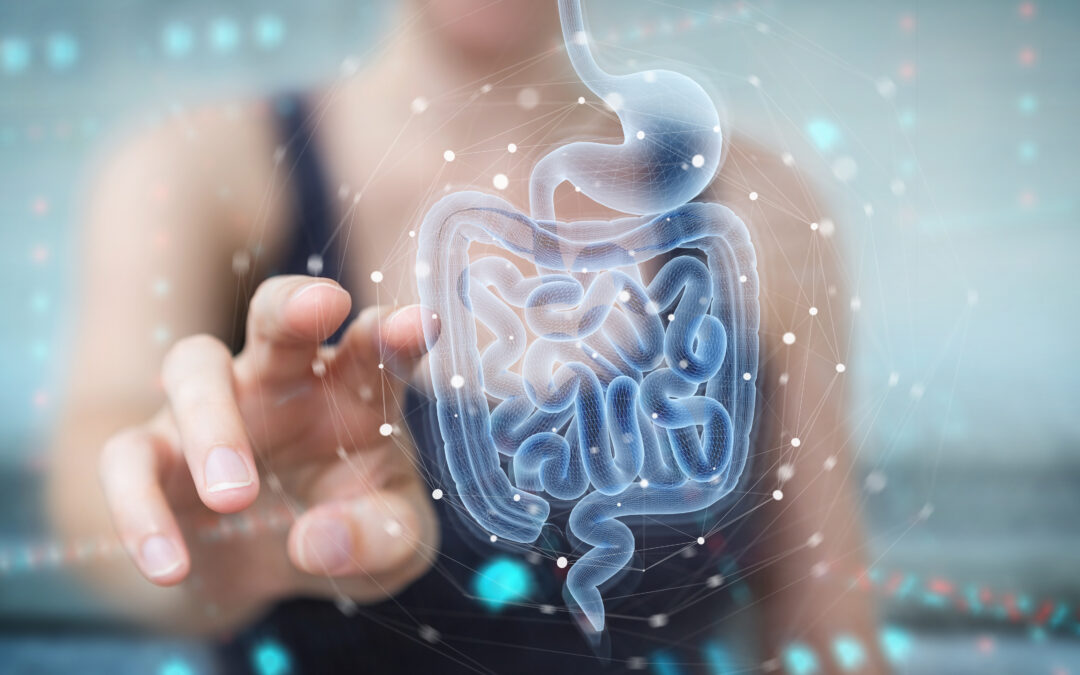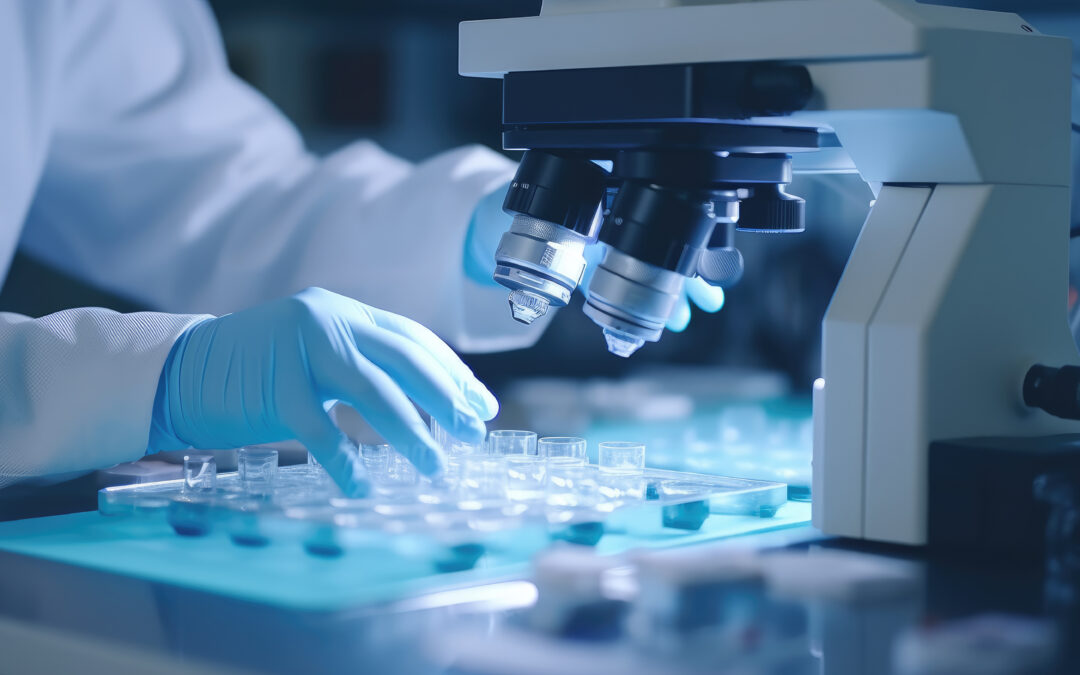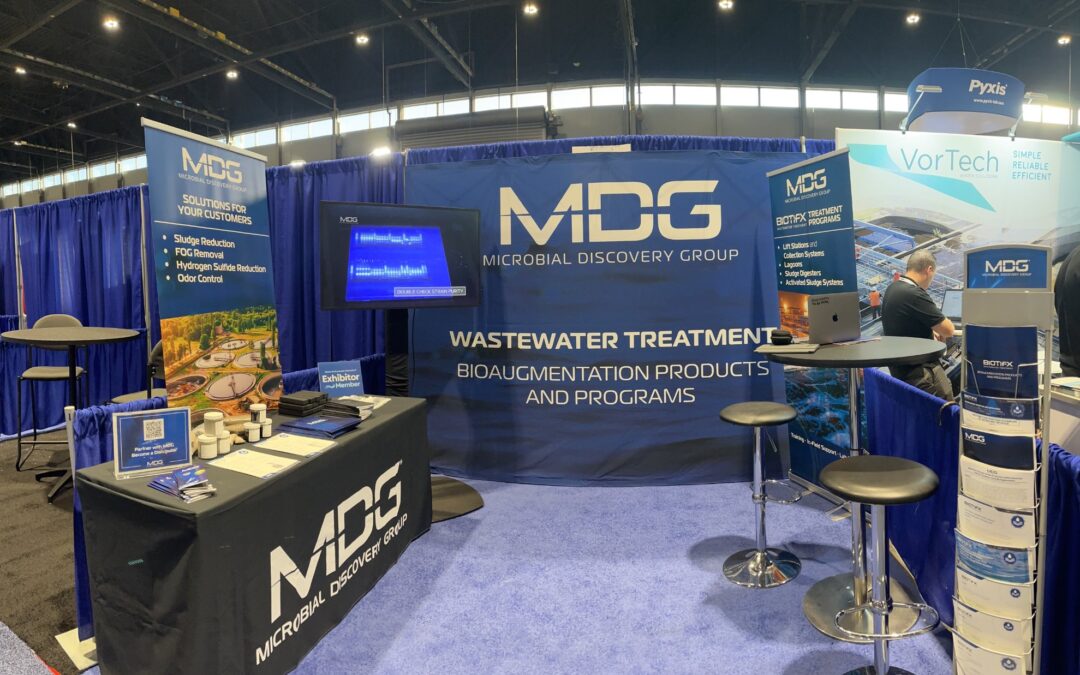Anaerobic digesters are vital components of many wastewater treatment plants, and problems that affect their operation can be detrimental to the facility’s efficiency. Certain issues may even cause a complete shutdown of digester systems, and it can sometimes take months to get them up and running again. With so much at stake, you need to provide your customers with a solution that’s designed to support and maintain healthy anaerobic digester functions. Read on to learn more about the problems your customers may face when operating digesters and how you can help them with MDG’s new product, Biotifx® AN.
What causes problems in anaerobic digesters?
There are several reasons why a digester system might not be operating at full capacity:
- Nutrient imbalances: Micronutrients are necessary in anaerobic digesters to encourage optimal microbial activity. If they aren’t present in the right amounts, both treatment speed and effectiveness decrease.
- High hydrogen sulfide (H2S) levels: Elevated H2S production not only affects the digester over time due to corrosion and costs around scrubbing H2S from methane, but also causes other problems like exceeding governmental regulatory limits on H2
- Poor digestion rate of organic material: When the system is not digesting organic material (i.e., long-chain and volatile fatty acids) properly, its capacity decreases, leading to a higher risk of system upsets and incomplete digestion.
- High ammonia: Ammonia levels above 2,000 mg/L inhibit methanogenesis, the process of creating methane. Since this is a major function of anaerobic digesters, high ammonia levels do not allow the system to do what it is designed to do.
How do you treat anaerobic digesters?
There are multiple methods for improving the functioning of anaerobic digesters, including chemicals and plant-based/inorganic micronutrient products. However, chemical treatment alone can get expensive quickly and is also less environmentally friendly than other options. Inorganic micronutrient products typically don’t include beneficial amino acids and vitamins to support treatment, and many plant-based products are lacking in other helpful biostimulants and micronutrients. Neither nutrient product type includes beneficial bacteria to enhance system performance.
So, what should you do if your customers are seeking a product that incorporates micronutrients, amino acids/vitamins, and beneficial bacteria? MDG has the solution: Biotifx® AN.
Treating Anaerobic Digesters with Bioaugmentation
At MDG, we pride ourselves on providing innovative and effective bioaugmentation products, and our newest addition to the Biotifx® product line is no different. Biotifx® AN is a robust blend of micronutrients and biostimulants with added Bacillus bacteria. It is scientifically formulated to mitigate system upsets by digesting organic material and removing nitrogen via ammonia assimilation. AN helps reduce the bottleneck that typically occurs in the hydrolysis and acid production stages, leaving more time for the methanogenesis stage. Our product continually enhances and supports methanogens that already exist in the digester, allowing the whole system to grow more efficiently, produce more beneficial byproducts (e.g., methane), and reduce negative byproducts (e.g., sludge, H2S, and odors).
Treatment with a bioaugmentation product like AN is environmentally friendlier than traditional chemical alternatives. Plus, the Bacillus in this product continue to work even after it’s applied, so facilities won’t have to dose as often and will save money in the long run.
Partner with MDG for Quality Wastewater Treatment Solutions
It’s important to properly and proactively treat anaerobic digesters to prevent system upsets and keep them operating smoothly. Biotifx® AN is an economical and effective way to achieve that goal—both for you and for your customers.
If you’re interested in hearing more about AN, or about any of our other wastewater treatment products and programs, contact us today or check out our wastewater page for more information!
MDG is the Bacillus solution that helps you scale and streamline without sacrificing product effectiveness.









